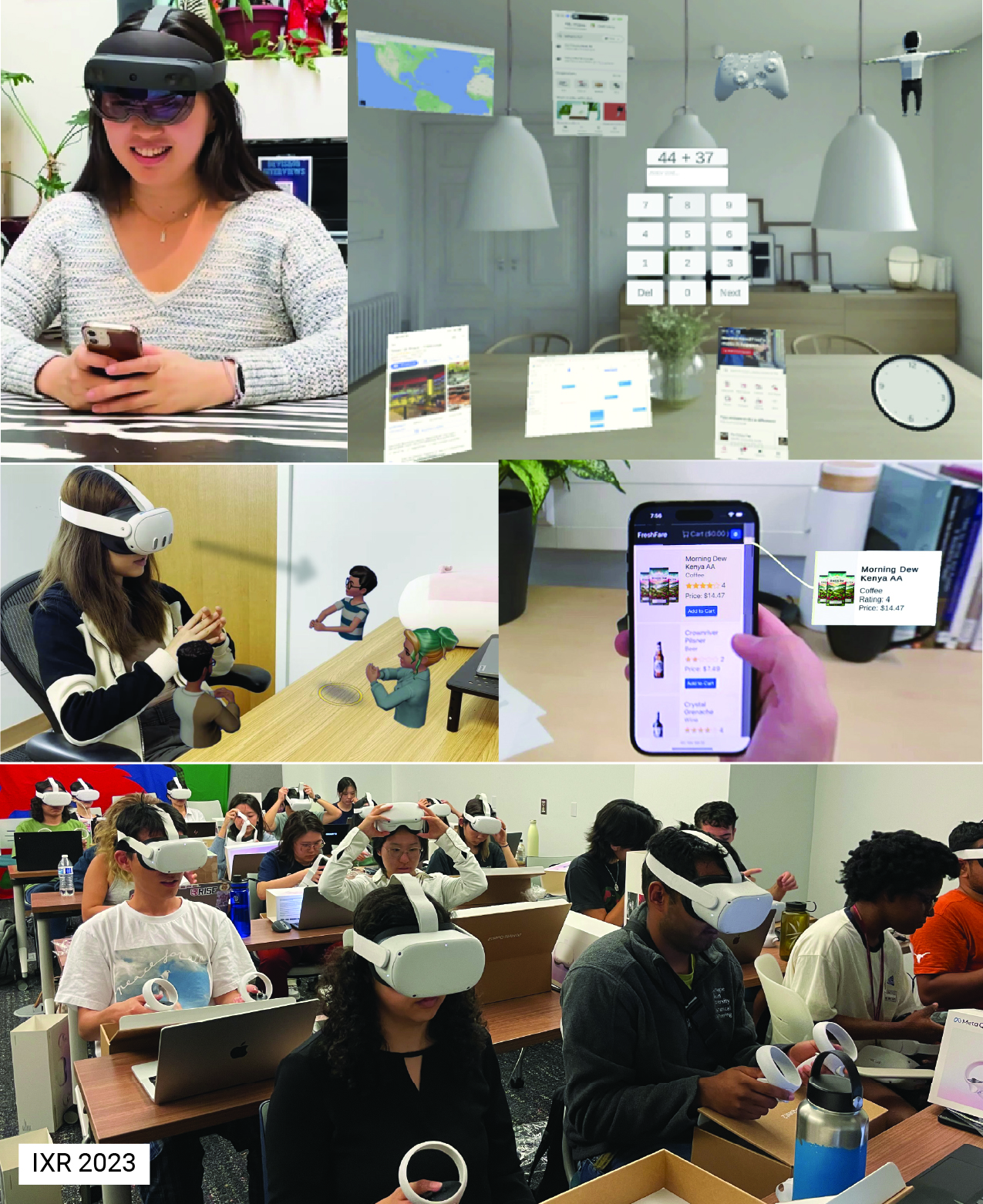Special Topics: Interactive Extended Reality (not offered Spring 2026)
Course Information
Course Number
HCI Undergraduate:
05-499
HCI Graduate:
05-899
Course Description
 This course focuses on the foundations and challenges of building interactive Extended Reality (XR) systems. We will review the basics of human perception and behavior, and how those form the requirements for current and future XR systems. The course then covers foundational topics in XR such as interaction design / interaction techniques, computer graphics (e.g., rendering), computer vision (reconstruction, pose estimation), applied machine learning (e.g., saliency prediction) and computational interaction (e.g., optimization-based interfaces). The class format will include lectures, discussions, homework assignments and projects. The class is designed to be a graduate/advanced undergraduate course, and requires strong programming skills. The goal is to provide students with hands-on experience in designing and building XR systems that could be employed in a variety of domains, from casual interaction, productivity, manufacturing, health care and future always-on XR systems.
This course focuses on the foundations and challenges of building interactive Extended Reality (XR) systems. We will review the basics of human perception and behavior, and how those form the requirements for current and future XR systems. The course then covers foundational topics in XR such as interaction design / interaction techniques, computer graphics (e.g., rendering), computer vision (reconstruction, pose estimation), applied machine learning (e.g., saliency prediction) and computational interaction (e.g., optimization-based interfaces). The class format will include lectures, discussions, homework assignments and projects. The class is designed to be a graduate/advanced undergraduate course, and requires strong programming skills. The goal is to provide students with hands-on experience in designing and building XR systems that could be employed in a variety of domains, from casual interaction, productivity, manufacturing, health care and future always-on XR systems.
Prerequisites
Students should have taken at least 2 programming courses such as: 15-104, 15-112, 15-122, 15-150, 15-213, 15-462, 16-385, 18-213, etc.
Semester Offered and Units
Semester:
Fall 2025
Undergraduate:
12
units
Graduate:
12
units
Enrollment Requirements
Students will be provided with a loaner XR headset (Meta Quest 2/3) for the whole semester. They will need a computer that enables them to program the headset (e.g., using Unity).
Skills
Students with technical focus who are interested in building XR systems.

